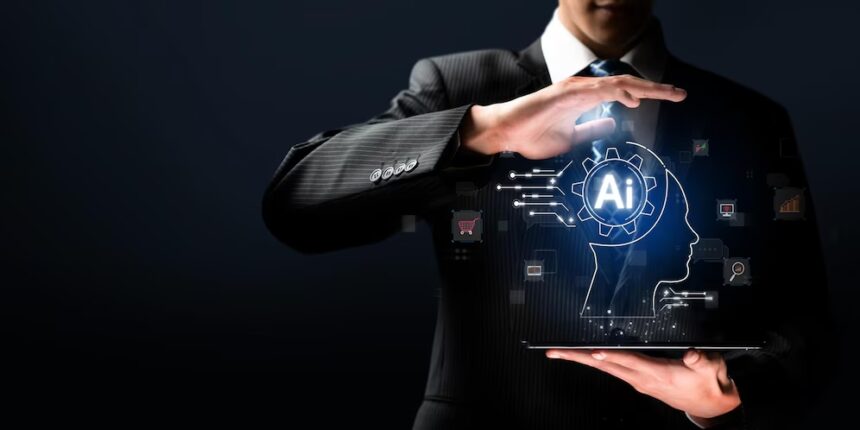In today’s fast-paced digital landscape, the role of artificial intelligence (AI) in marketing is nothing short of revolutionary. AI is not just a buzzword; it’s a game-changer, transforming the way businesses connect with their audiences. From personalizing customer experiences to optimizing ad campaigns, AI in marketing is the secret sauce that’s driving the future of digital marketing. Let’s dive into how AI is shaking up the marketing world and what it means for businesses and consumers alike.
The Rise of AI in Marketing
The integration of AI in marketing has seen exponential growth in recent years. According to a report by MarketsandMarkets, the global AI in marketing market is expected to grow from $11.8 billion in 2020 to $40.9 billion by 2025, at a compound annual growth rate (CAGR) of 28.6%. This surge is driven by the increasing demand for personalized customer experiences, the need for better ROI on marketing campaigns, and the growing availability of data.
But what does AI in marketing actually mean? At its core, it involves leveraging machine learning algorithms, natural language processing, and data analytics to automate and optimize marketing tasks. Whether it’s predicting consumer behavior, generating content, or enhancing customer service, AI is redefining the marketing playbook.
Personalization: The Name of the Game
One of the major ways AI is transforming marketing is through its ability to create highly personalized experiences. Consumers today expect brands to understand their preferences and tailor their offerings accordingly. AI makes this possible by analyzing vast amounts of data to create detailed customer profiles. This enables marketers to deliver the right message, to the right person, at the right time.
For instance, AI-powered recommendation engines are now a staple in e-commerce, suggesting products based on past purchases, browsing history, and even social media activity. This degree of personalization not only improves the customer experience but also increases conversion rates. According to Epsilon, 80% of consumers are more likely to make a purchase when brands offer personalized experiences.
Content Creation and Curation
AI is also revolutionizing content marketing, making it easier for brands to create and distribute high-quality content. AI-driven tools can generate blog posts, social media updates, and even video content, all tailored to the brand’s voice and audience preferences. These tools use natural language processing to craft content that is not only relevant but also engaging.
Moreover, AI helps in content curation by analyzing user behavior and recommending content that resonates with the audience. This ensures that brands consistently deliver value to their customers, keeping them engaged and coming back for more. A survey by HubSpot found that 61% of marketers believe AI will significantly impact content marketing strategies in the coming years.
Optimizing Ad Campaigns
Gone are the days of manually managing ad campaigns. AI in marketing is transforming how businesses approach paid advertising. AI algorithms can analyze campaign performance in real-time, making adjustments to optimize ad spend and targeting. This level of automation ensures that marketing budgets are used efficiently, maximizing ROI.
Enhancing Customer Service with AI
Customer service is another area where AI in marketing is making a significant impact. AI-powered chatbots and virtual assistants are now a common sight on websites and social media platforms. These tools can handle a wide range of customer inquiries, providing instant responses and freeing up human agents to focus on more complex issues.
AI-driven customer service tools are not only efficient but also improve customer satisfaction. A report by Salesforce found that 69% of consumers prefer using chatbots for quick communication with brands. As AI continues to evolve, we can expect even more sophisticated interactions that feel less robotic and more human-like.
Predictive Analytics: The Future of Marketing
Predictive analytics is another impactful way AI is used in marketing. By analyzing historical data, AI can predict future trends, helping marketers make data-driven decisions. Whether it’s forecasting sales, identifying potential leads, or determining the best time to launch a campaign, predictive analytics provides valuable insights that can significantly improve marketing outcomes.
Conclusion
AI in marketing is no longer a futuristic concept; it’s a reality that’s reshaping the industry. From personalized experiences to automated ad campaigns, AI offers endless possibilities for businesses to connect with their audiences in more meaningful ways. As AI technology continues to advance, marketers who embrace these tools will be better positioned to stay ahead of the curve and thrive in the competitive digital landscape.
In the world of digital marketing, AI is the ultimate game-changer—one that’s here to stay. So, if you haven’t already, it’s time to jump on the AI bandwagon and see how it can transform your marketing efforts.







